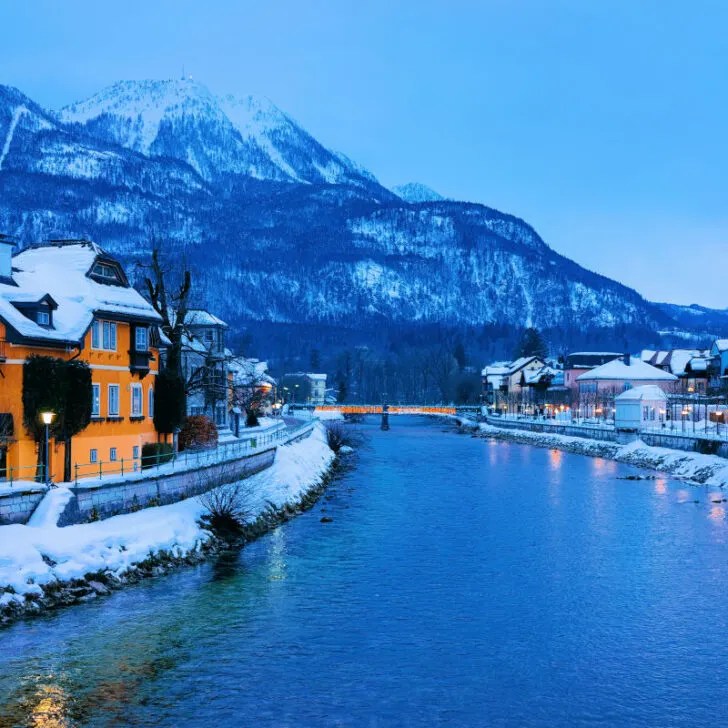Europe is everyone’s go-to destination for a journey to the past. A continent filled with historic medieval fortresses, centuries-old cobbled towns, and home to some of the most magnificent manmade structures of the Ancient World, it simply oozes culture.
With so many incredible spots to pick from, we know it’s remarkably challenging to put together a Europe itinerary, especially if it’s your first time over and you’re not entirely sure where to go beyond the likes of Paris, Milan, and London this winter.
Luckily, the European Commission has got you covered, as it has announced the top 3 destinations in Europe for cultural immersion, and the winning trio may surprise you:
The European Capitals Of Culture For 2024
Every year, the EC awards ‘European Capital of Culture’ status to select European cities distinguished for their historical significance.
Over the course of one year, the winning trio or duo will host a series of events aimed at promoting their local culture and tourist offer, as well as receive funding to boost urban development and raise its international visibility.
This year, the current Capitals of Culture are Eleusis in Greece, Timișoara in Romania, and Veszprém in Hungary.

Normally, the title is bestowed upon smaller cities or regional units relatively unknown to the general public beyond their own countries in an attempt to foster growth and shine a light on some of Europe’s overlooked cultural treasures.
This winter, three new hidden gems will replace the 2023 triad as European Capitals of Culture (ECC), and they are arguably the most exciting and diverse grouping the Commission has picked in years:
Bad Ischl, Austria
A Spa Destination In The Heart Of The Austrian Alps
A small spa town in Upper Austria, Bad Ischl has been for centuries a sort of pilgrimage site for health and wellness enthusiasts.

A typical Austrian settlement hugged by majestic mountains and cut through by the Traun river, whose fast-flowing current is the only sound to break the alpine silence, it provides an idyllic escape from the much larger Vienna or Graz.
Austrians have long identified Bad Ischl as a place for reconnecting with nature, healing their inner ailments, and taking a much-needed breather, but it’s remained relatively unheard-of beyond the Republic’s borders and the wider German-speaking world.

With its luxurious spa resorts equipped with modern wellness centers, where holistic treatments are available, and natural thermal springs nestled in the heart of the Salzkammergut range, it’s truly a wonder Bad Ischl has been flying under the radar for so long.
Other attractions include the Old Town, where the narrow cobbled streets are lined by traditional pastry shops, and the long gondola lift, rising above the town and traversing the alpine pastures to reach the Katrin peak, at 4643 feet high.
Atop this peak, you will be met with a gorgeous panoramic view of the Salzkammergut Alps and the impressive ruins of Wildenstein Castle.
Tartu, Estonia
The Intellectual Capital Of One Of Europe’s Easternmost States
The country of Estonia as a whole is deserving of a nod, with the capital of Tallinn boasting one of the best-preserved medieval towns in all of Europe and the Eastern town of Narva offering picturesque views over the Narva River into Russia, but it’s Tartu that’s been granted ECC status this time.

It may be a small city of only 97,000 or so inhabitants – the second largest in Estonia – but it is often considered the intellectual center of the country, home to its oldest university and a host of historical landmarks.
Notable buildings include the University of Tartu, founded in the mid-17th century, the Supreme Court of Estonia, the National Museum, the 18th-century Town Hall, and the ruins of a medieval cathedral, which fell into disuse as early as 1563.
Estonia is world-renowned for its medieval folk festivals, with a large medieval fair taking place in Tallinn every year around wintertime, but a little-known fact among tourists is that Tartu is the birthplace of the Estonian Song Festivals.

One of the largest choral events in the world, it has been officially classed by UNESCO as a Masterpiece of the Oral and Intangible Heritage of Humanity, as over 30,000 singers perform for an audience of over 80,000. The next event is set to take place in the summer of 2024.
Bodø, Norway
A Culture Center North Of The Arctic Line
The Northernmost entry on this list, the Norwegian coastal city of Bodø is located North of the Arctic Circle, and it’s a very compact town, with the airport, harbor, railway station, and historic center being within walking distance of one another.
This makes Bodø the most walkable and certainly the most unique European Capital of Culture for the upcoming winter. If harsh, freezing winters do not scare you easily, you might want to give this one a try, as the city is a popular hotspot for sightings of the Aurora Borealis.

It also serves as a gateway to the wild Norwegian Arctic, where the country’s typical verdant lands and dramatic fjords give way to tundra and jagged snowy peaks.
The selection of Bodø as an ECC may have been controversial to some, as it is quite remote and best known among Norwegians for its unspoiled nature and wintery scenes, but the municipality is keen on reinventing itself as not only an Arctic getaway but also a regional cultural center.
Beginning this winter, authorities will promote events focusing on the Sámi lifestyle, relating to the indigenous groups of Sámi people residing across Northern Europe, and boost investment for historic structures in the center, including the Stormen Culture Center, an icon of the Bodø waterfront.

Credit: Source link

